- Global Outlook//
- Latest news//
- - We must stand together
- We must stand together
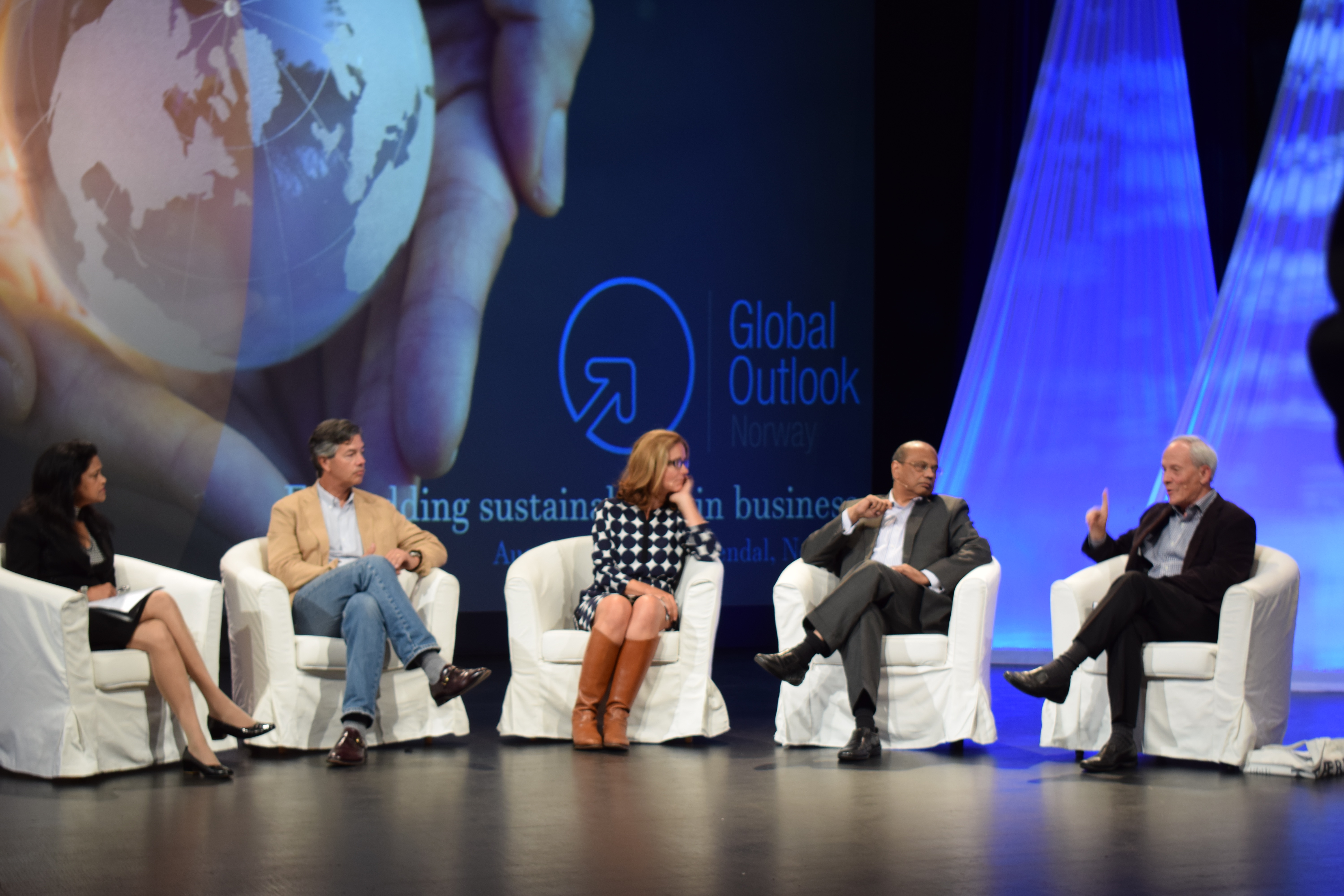
Minister of Foreign Affairs, Ine Marie Eriksen Søreide, presented her perspectives on the important geo-political trends of our times when she spoke at the Global Outlook conference at Arendalsuka Monday. But first, we had a little chat about what she is going to do with Trump´s trade war.
Minister of Foreign Affairs, Ine Eriksen Søreide, is concerned about international cooperation in the face of threats to multilateralism and a pushback against globalization.
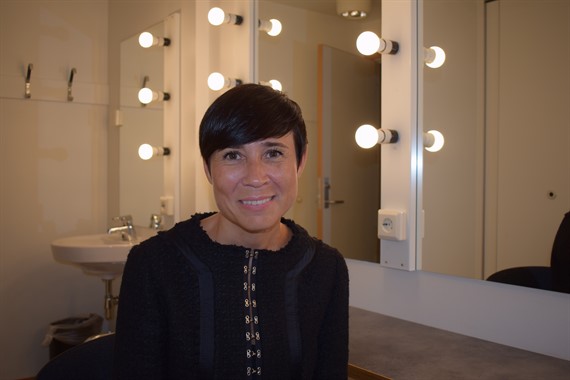
- While tensions run high between the USA, the EU and China in international trade, where is Norway standing in all of this?
- Foreign trade plays a very important role in the Norwegian economy. As an open and export oriented economy, Norway is dependent on international cooperation based on common rules – both globally through the World Trade Organisation (WTO) and in our own region through the EEA-agreement. The EEA-agreement gives us access to the European market of 500 million people. 80 percent of our exports go to the EU. We recently had the benefits of rules and predictability brought by the EEA-agreement demonstrated once again, when Norwegian exports were exempted from the EUs safeguard measures for steel.
Common rules
- Norway has always been a strong defender of an international order where right is over might. We have a fundamental interest in a strong multilateral system in the WTO with clear rules that minimize the opportunity for misuse and provides maximum transparency, as well as an efficient dispute settlement system. This is why we have asked for WTO dispute settlement consultations with the US over their tariff increases on steel and aluminium that we believe violate WTO rules, says Eriksen Søreide.
She then opened the Global Outlook conference taking the example of a plastic pen, and how this pen can be a picture of our global thinking on sustainability and international cooperation.
- Its material, plastic, can illustrate international production and trade, but it can also illustrate the global environmental problem when you find the pen as a plastic waste in the sea, she says, and continues:
- The question is not what it is but what we want it to be: A piece of plastic or a piece of the puzzle? When we see it, do we leave it where it is or do we pick it up? In achieving sustainability, we all have our part to play. Big or small.
Sustainability in business
Embedding sustainability in business - as this years conference is called, is a good illustration of what the five different speakers presented from their different views.
Øystein Djupedal, leader of the programme committee, opened this years Global Outlook 2018.
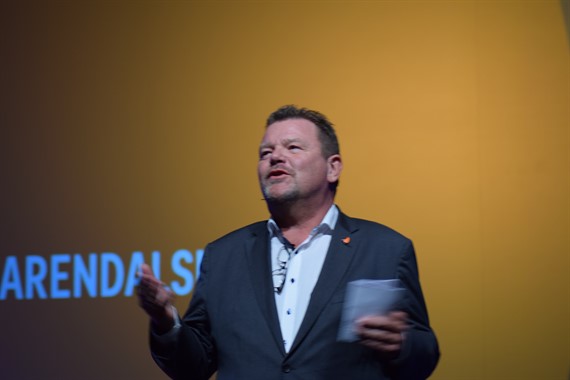
While the Minister of Foreign Affairs was the first of the five speakers, provided perspectives on the important geo-political trends of our times, the four other speakers gave their views on the topic from different angles.
- I deceided to pause my life, said President and Founder of Capital Institute in Connecticut, USA, John Fullerton.
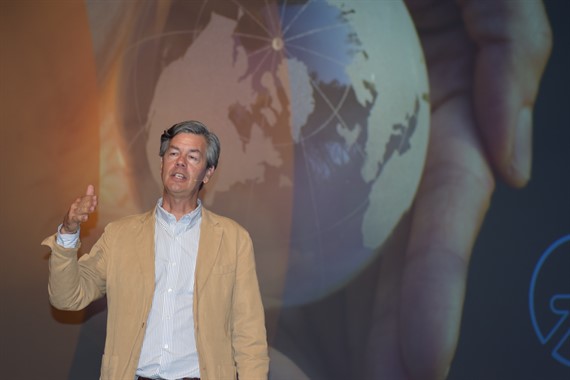
He took a pause from Wall Street, reconcidering his values in life, and how to shape a new sustainable economy. He gave an interesting holistic picture of the scientific patterns and principles of living systems to create Regenerative Economies to adapt to a world of accelerating change.
- Emergence is how to lead to change, he concluded.
Started with loving the nature
Vincent Stanley, California-based Patagonia’s executive-turned-chief storyteller, touched our hearts with his change of minds - describing how success stories inspire companies, communities and citizens to do the right thing.
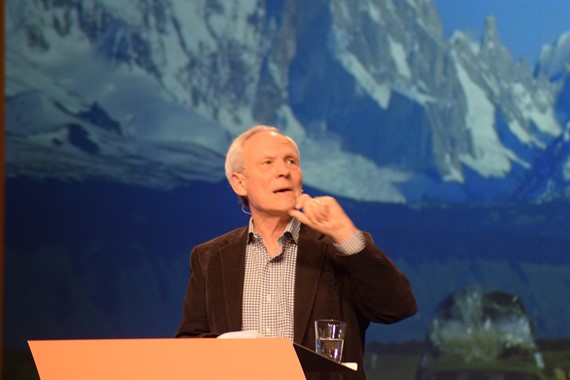
- We started in Patagonia as climbers and surfers 45 years ago. Your relationship with the world changes when you are away from the main road, and out in the wildness. But it´s difficult to share that with people who are not having this experience, Vincent Stanley told with his philosophic voice from the scene.
This was how they started being a business with organic products not damaged by toxic soil. All their clothes is made by chemical free cotton.
But the big question is - how do we transfer the story to the people?
You must feel it
Applying lessons from nature - Geanne van Arkel, Head of Sustainable Development, Interface EMEA, The Netherlands, outlined the principles of biomimicry to show how sustainability drives innovation and profitability.
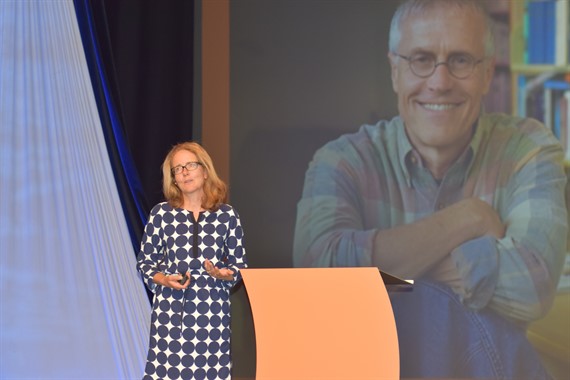
She answered Stanleys question, saying that we can change the story from being abstractive to something we can feel. And also to have the holistic view as Fullerton showed us.
- It´s not enough to learn from the nature - it´s about acting as the nature, she said.
Climate takes back. For leading the industrial re-revolution, you need everybody on board. Van Arkel gave examples of how her carpet tile company, Interface, finds new ways of recycling materials useful in their products.
Economic growth, reduced emissions
- Halving carbon emissions by 2040 is within our reach if we act now, said Ajay Mathur, Director General of the Energy and Resources Institute for India and China.
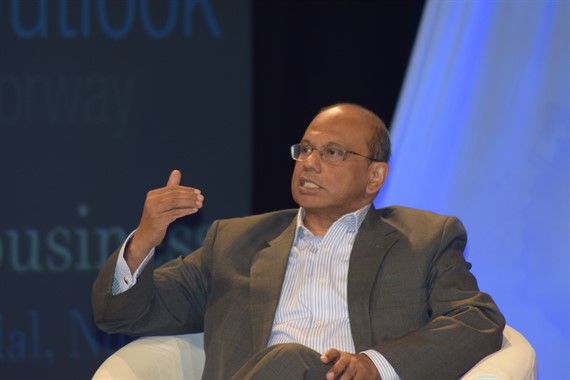
He spoke about the challenge of energy demand in a sustainable future. He discussed the role of governments and businesses in supporting each other to reduce carbon emissions while achieving economic growth, as the reduced prices of batteries within the latest years.
- We need to focus on ideas of new technology which is cost effecience for the companies, he concluded.
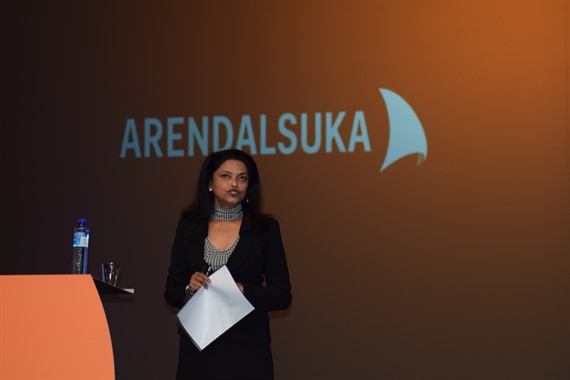
Anita Pratap, the award-winning international journalist, moderated the event. She concluded with the words:
- It´s people´s will that, through conversations, that bring change.
Believes in Eyde Cluster
Before the Minister of Foreign Affairs entered the stage, we asked her about how she consider Eyde Cluster as a contributer in to the national and international sustainable business.
- Eyde Cluster is an exciting cluster. We haven´t done too much of that way of acting. Oslo Cancer Cluster is also a cluster thinking in new ways. It´s positive when you can learn from each other. Cooperation gives more value than loss. We need more international cooperation, says Eriksen Søreide.
